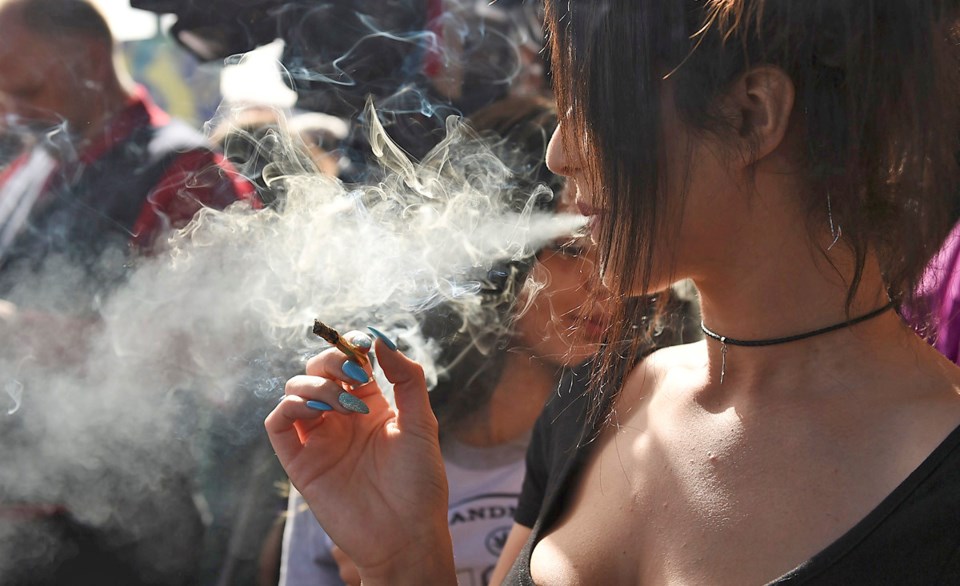Nothing seems to have the cops and local and provincial politicians scrambling more these days than their attempts to get ahead of the federal government’s plans to make marijuana legal by next summer.
But that should hardly be too much of distraction to allow the toker in the Prime Minister’s office, the cute and clever Justin Trudeau, off the hook when it comes to effectively dealing with a more immediately critical drug issue, the opioid crisis.
Yet is seems to have.
So how bad is it? Well, as you may know, the number of overdose deaths seems to be rising unabated. Each year we set new records.
As CBC Radio’s The House reported in a special program on the opioid crisis this past weekend, more Canadians are now being killed because of criminally polluted opioids than all of those who lose their lives in traffic accidents and homicides combined.
Look at the most recent statistics and you will understand how those of us on the coast have a particularly pressing need to demand federal government action.
No province has been more negatively impacted by this plague than British Columbia, no population has been victimized more than those in Vancouver, and, as we have seen most recently, no group within that population, and indeed across the country, has been more overwhelmed by this crisis than Indigenous people. They are dying at 12 times the rate of the rest of the population suffering death by overdose.
And here is a statistic that should cause you to pause. While among the rest of the population 20 per cent who overdose are women, in the Indigenous community that number jumps to 40 per cent.
Janice Abbott is the executive director of Atira Women’s Resource Society and has been working with Indigenous women in Vancouver for the past 25 years. Her explanation about why First Nations, Metis and Inuit (FMN&I) women in particular are afflicted by drug overdoses is also reflected in a recent report from the British Columbia First Nations Health Authority.
She explained it to me this way: It is all about “transgenerational trauma — that is the trauma associated with colonization, residential schools, stolen children, racism sexism and violence.” That has affected these women for generations and “can lead to problematic substance use and in this environment, overdoses.”
Her solution — legalize and regulate all drugs — is one that is widely held among physicians and advocates in the field of drug addiction across the country.
But that would require federal approval, placing it squarely at the feet of Trudeau.
What we have been left with instead is a combination of supervised injection sites and increasing broad distribution of naloxone, a narcotic drug that can — if delivered on time — reverse the effects of an overdose most often caused by opioids tainted with fentanyl or the even more powerful carfentanil.
It is a strategy that does little to alleviate a situation that verges on chaos, stressing out first responders, putting increased pressure on the public purse and doing little to help those who suffer with drug addiction to normalize their lives.
As Nova Scotia’s chief medical health officer Dr. Robert Strang watches the effects of this crisis spread east across the country he expresses concern about the current options. He is also, by the way, the co-chair of the federal-provincial and territorial special advisory committee on the epidemic of opioid overdoses.
He told CBC naloxone and supervised injection sites are “necessary but they are a Band-aid and until we have found a way to deal with the issues around decriminalization and even legalizing all substances and helping people who are struggling with addiction… we are always going to be on the back foot.” As for the victims of this crisis, who he describes as “often marginalized and impoverished, he says as long as we take “a criminal justice approach to it, we are putting them in a place where their risk of dying is high.”
To this point, while admitting there is a crisis, Trudeau remains adamantly unmoved. He may claim to be committed in particular to improving the lives of our Indigenous population who are disproportionately suffering but he has so far failed. He is, as my Texas relatives would say, all hat and no cattle.
Pot clearly appears to be his drug of choice.
agarr@vancourier.com
@allengarr



